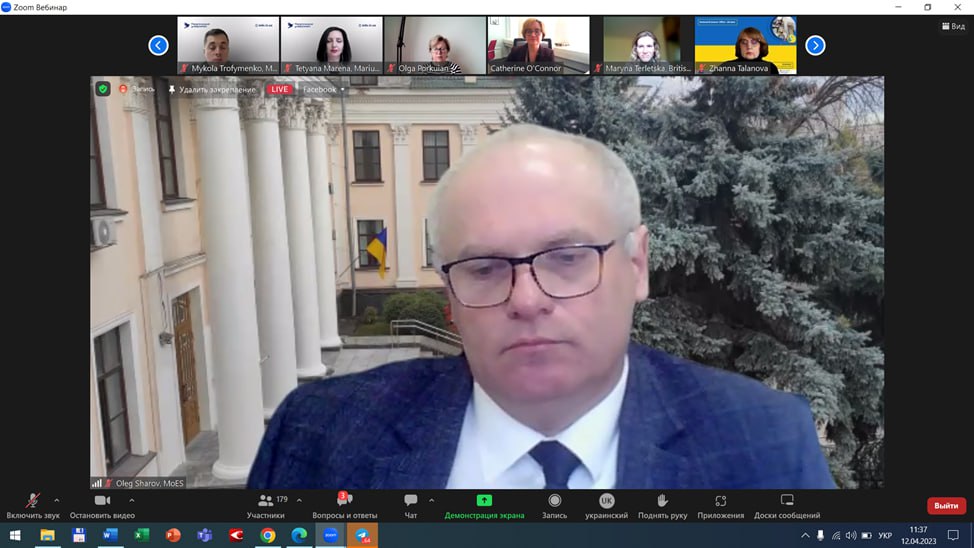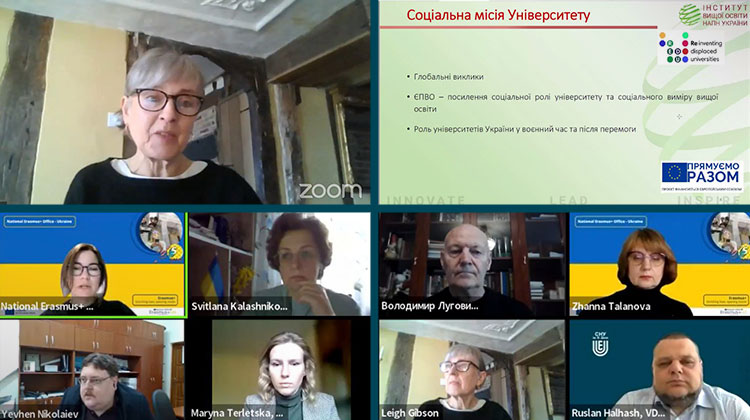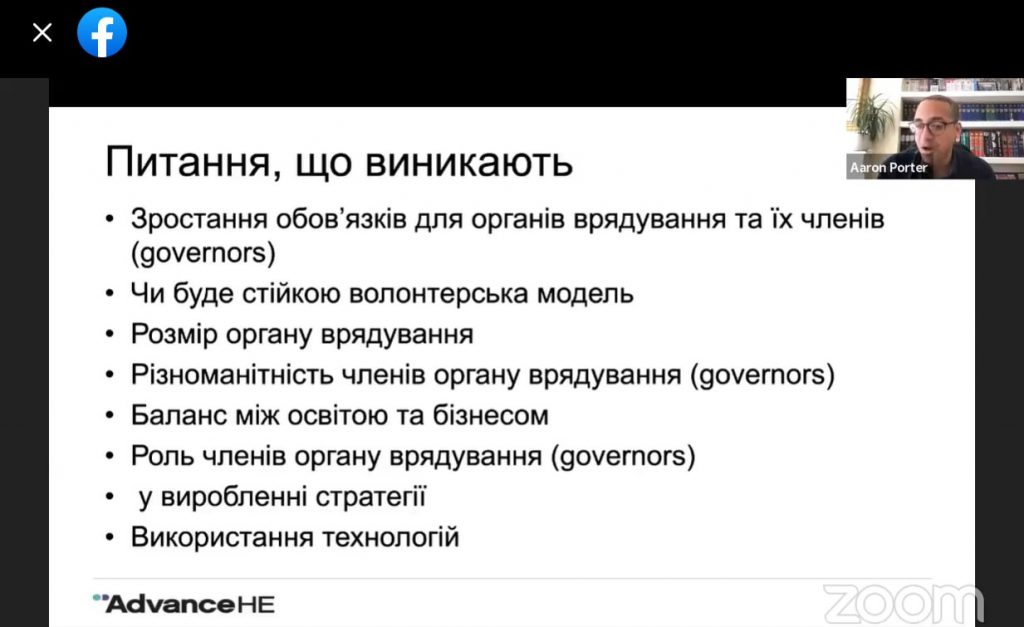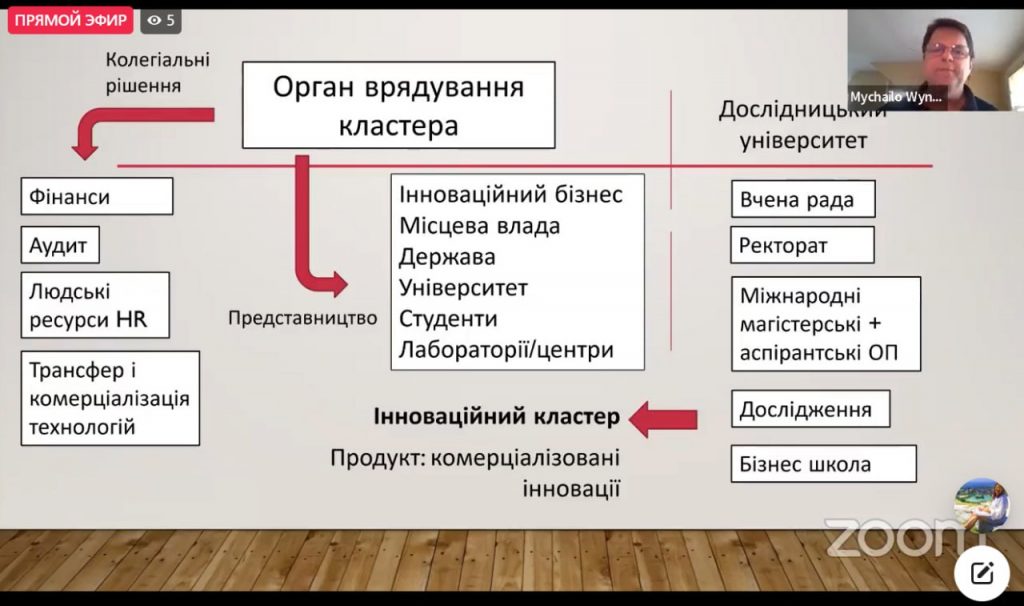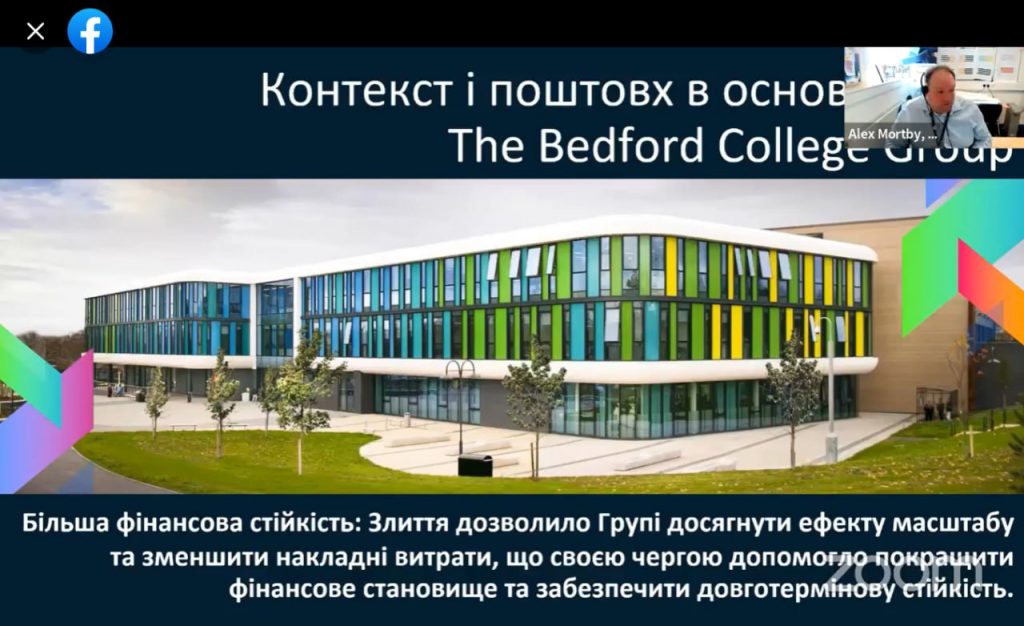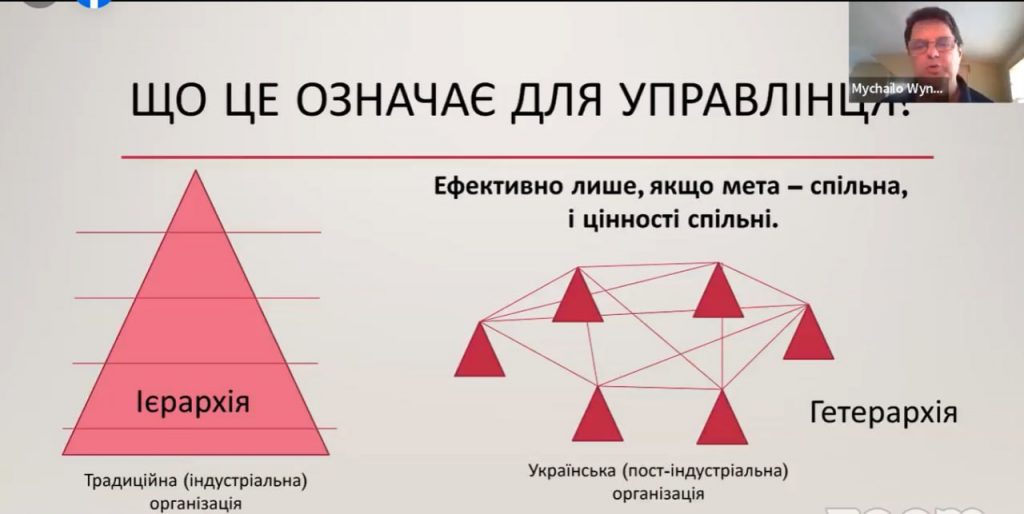Representatives of Volodymyr Dahl East Ukrainian National University took part in the II International Scientific and Practical Conference “Personality, University, Society: Interaction in the Context of Changes”.
The conference was initiated by a consortium of partners of the EU Project “Reinventing displaced universities: enhancing competitiveness, serving communities” (REDU). Participants: The Institute of Higher Education of the National Academy of Sciences of Ukraine, Mariupol State University, Volodymyr Dahl East Ukrainian National University, and the British Council in Ukraine. Partners in the organization of the Conference were also: National Erasmus+ Office in Ukraine, National Agency Advance HE (UK).
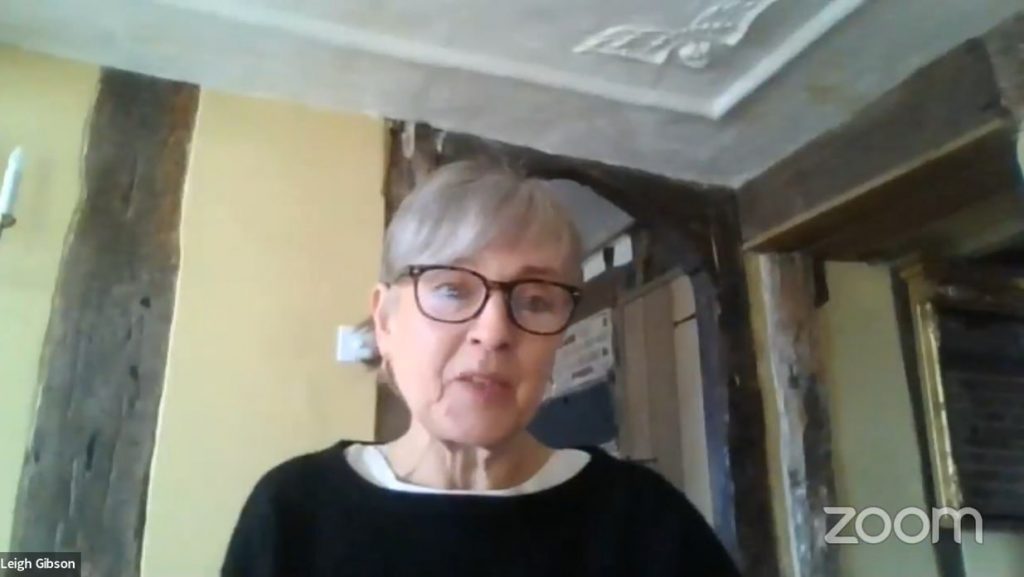
The conference participants were greeted by Leigh Gibson, Director of the British Council in Ukraine and Svitlana Kalashnikova, Project Manager of the Revitalizing Displaced Universities: Strengthening Competitiveness, Supporting Communities (REDU) Project, Advisor to the Directorate of the Institute of Higher Education of the National Academy of Pedagogical Sciences of Ukraine.
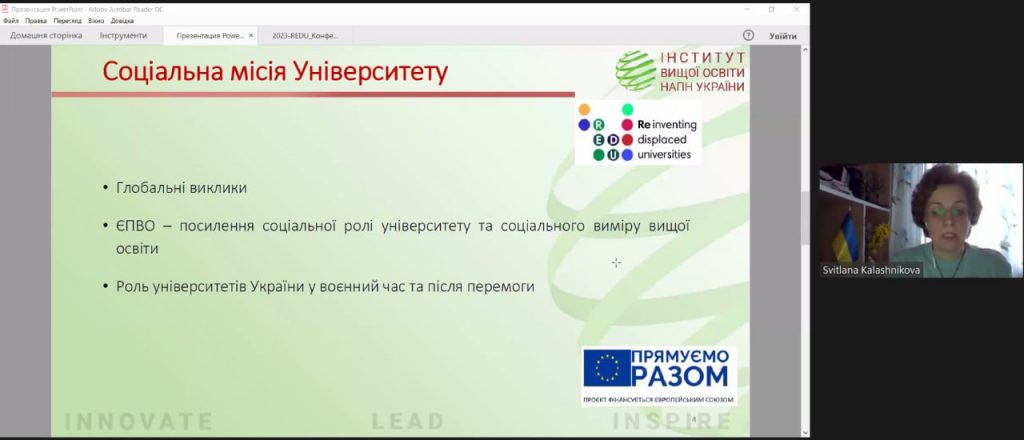
The purpose of the Conference is to discuss the problems and challenges that are relevant for Ukrainian universities in the new realities caused by military aggression and the tasks of post-war reconstruction of the country.
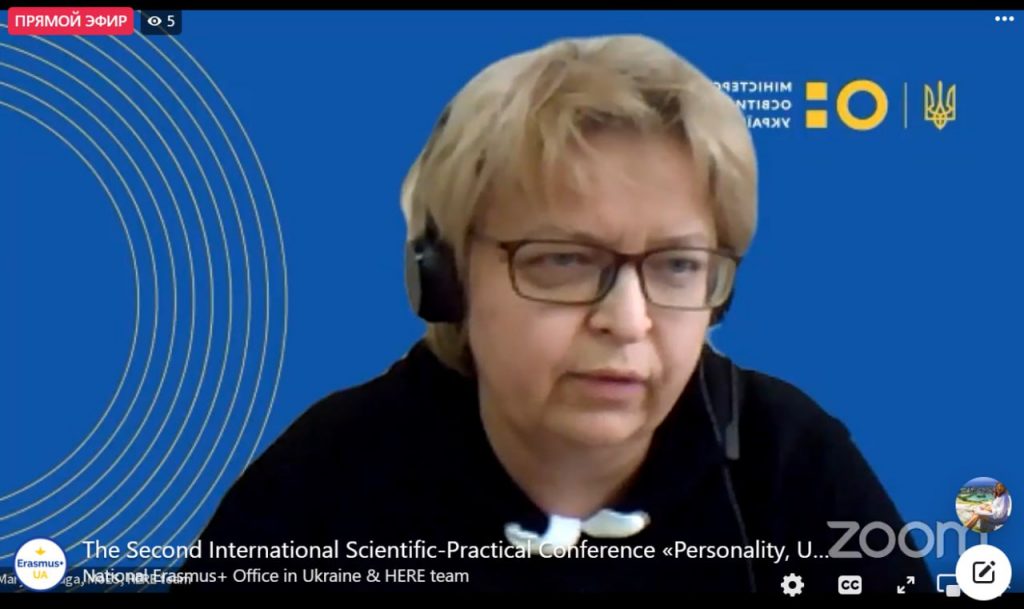
The following issues were put forward for discussion:
- Awareness of the changes taking place in higher education in Ukraine;
- University strategy: changes as a challenge and a window of opportunity;
- Practices of merging higher education institutions.
- How to do it right What is university governance? How to achieve it in Ukraine?
- How to organize effective governance.
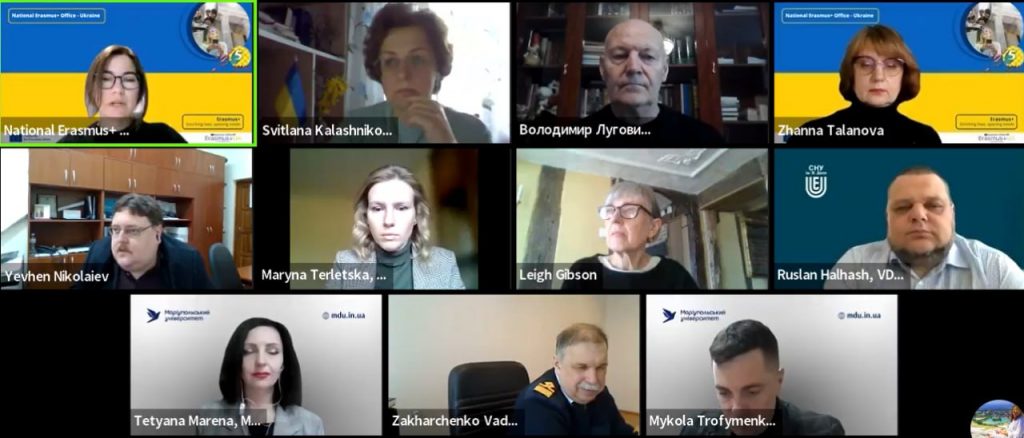
Today, there is an awareness of the need to support displaced universities in the face of strategic and resource uncertainty due to the growth of their social mission, especially in the revival of regions that were under occupation after the war. Hence the term “Civic university”, which refers to its mission: serving the community, in the community, with the community. Currently, a network of national civic universities is being formed. Around these ethical, patriotic, and cultural centers, regions will be revitalized. Therefore, universities need to strategize both their future and their communities. There is a realization of the value and uniqueness of universities as performers of these tasks.
Liliya Hrynevych, First Vice-Rector of Borys Grinchenko Kyiv University, together with her colleague Yevhen Nikolayev, presented the report of the University’s Analytical Center “Higher Education in Ukraine: Changes Due to the War”. The report focuses on the displaced universities, where 8-9% of Ukrainian students and teachers study and work.
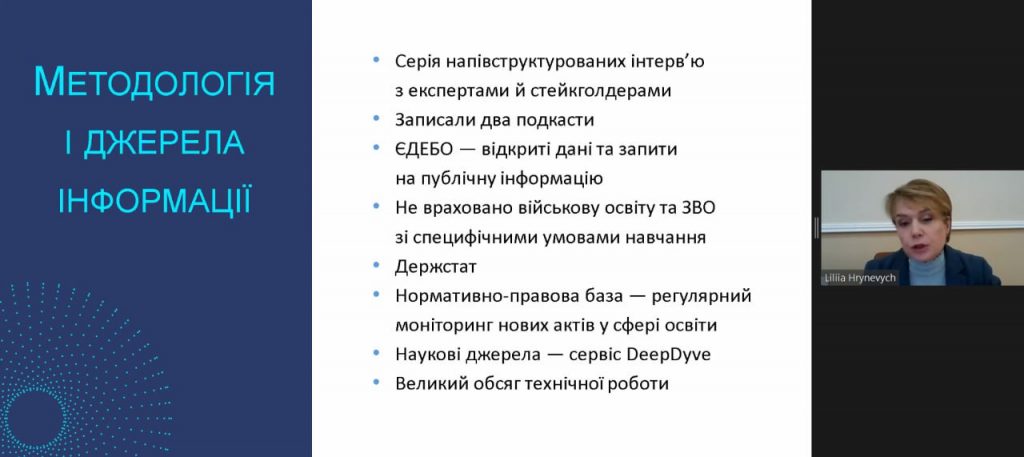
The purpose of the analysis is to outline the range of problems and challenges faced by the higher education system due to the pandemic and war, and to assess the experience and decisions of the authorities and universities in responding to them, to provide relevant information to international partners to determine their assistance and expand cooperation between Ukrainian and foreign universities.
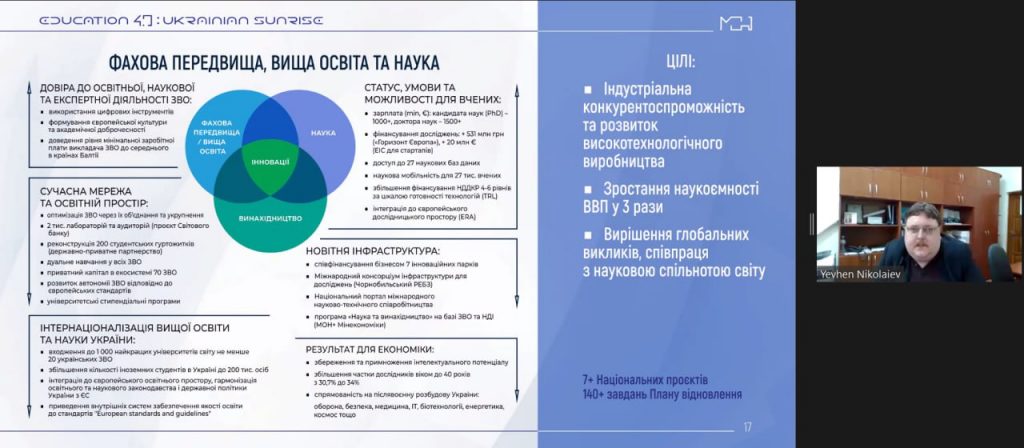
Assessing the analysis, Ruslan Halhash, Vice-Rector of Volodymyr Dahl East Ukrainian National University, said: “We should see the displaced universities as having the potential to rebuild Ukraine. We cannot ignore the fact that 99% of the faculty/staff moved to the Ukrainian territory, the potential is increasing, and it is they who will have to restore life in the de-occupied territories.”
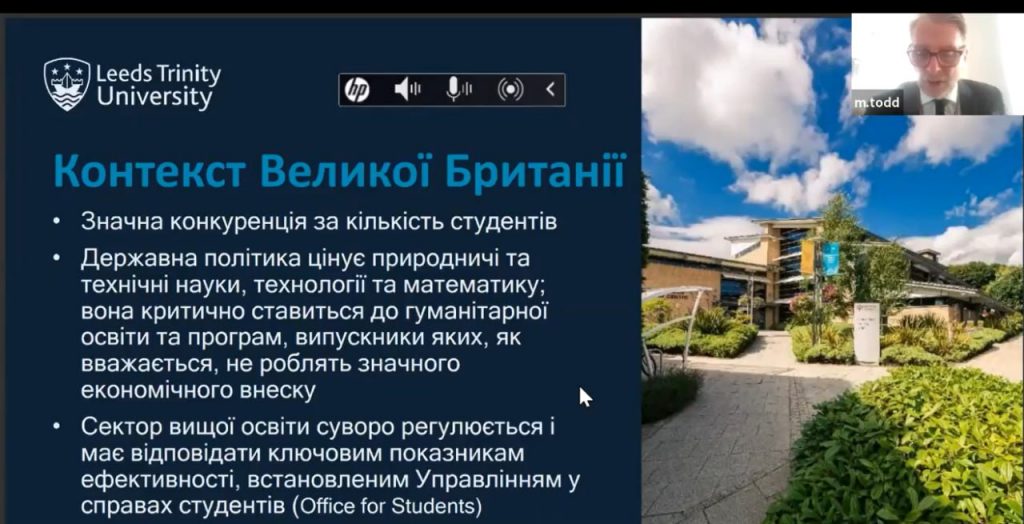
British colleagues Prof. Malcolm Todd, Provost and Deputy Vice-Chancellor, Leeds Trinity University, Prof. Catherine O’Connor, Pro-Vice Chancellor for Education and presented a report on the state policy on universities. The strategy is built around 4 principles: education and experience; career and entrepreneurship; people and sustainable development; research, impact, innovation. Substrategies are built around these principles. Markers of project success:
- discussion by staff and students;
- student success;
- support for institutional sustainability;
- support for civic and community service;
- assistance in meeting industry requirements;
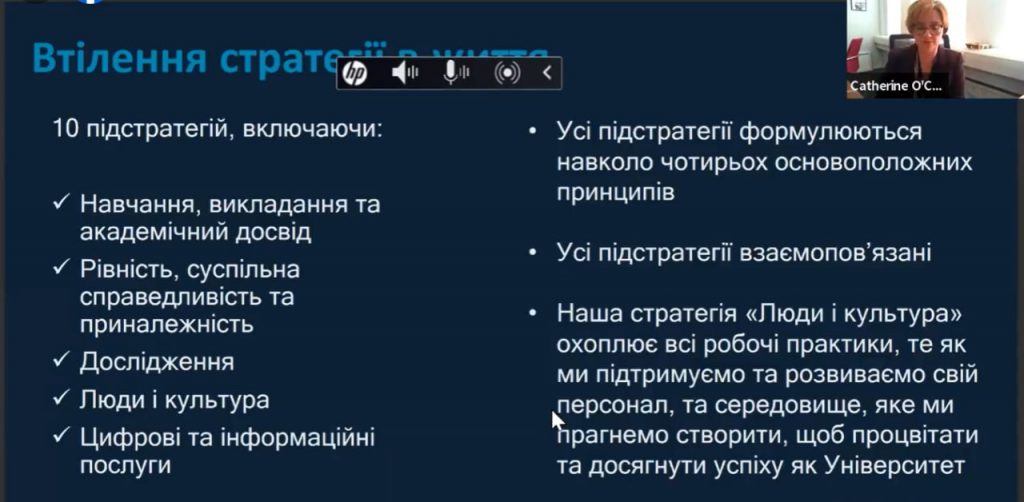
Alex Mortby, Vice Principal, Curriculum and Higher Education, Bedford College Group, shared the results of the creation of Bedford College Group by merging several institutions: greater financial sustainability, increased credibility and reputation, improved access to resources, and better quality of offer.
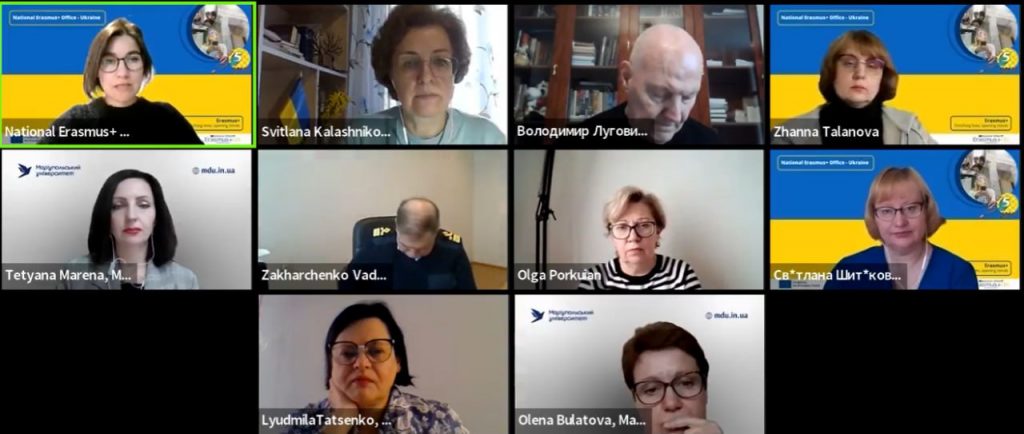
Olha Porkuian, Rector of Volodymyr Dahl East Ukrainian National University, expressed the opinion that mergers in Ukraine should take place/continue after the end of the war, as there are many problems due to improper registration of property or land plots, and this process is complicated by the occupation of the territories where the merging parties are located. Mr. Alex agreed with this opinion and gave real examples of overcoming problems with the merger of institutions.
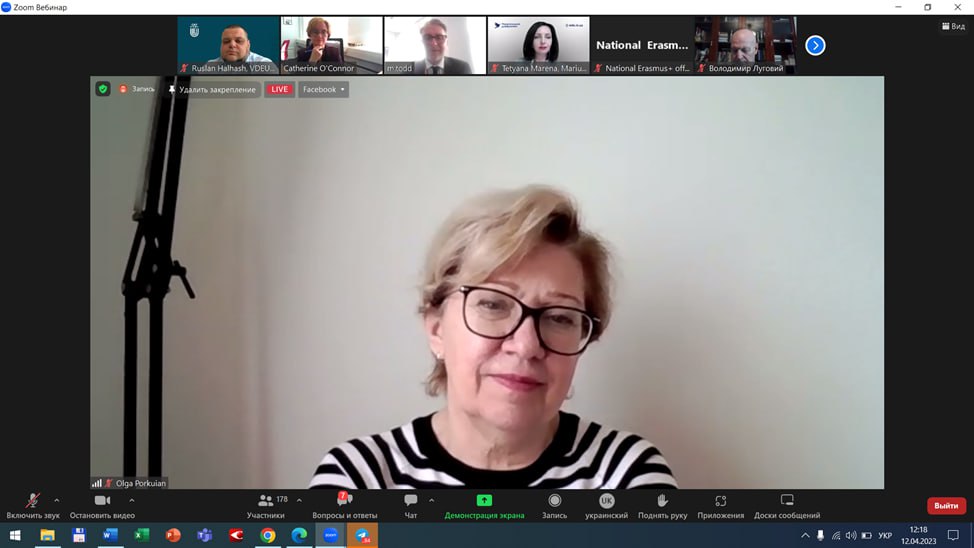
Aaron Porter, Associate Director, Advance HE, presented an overview of governance in higher education in the UK and the conditions for effective boards. The speaker compared the situation in the countries of the kingdom, outlined the key features of the governing body of the HEI.
Mykhailo Vynnytskyi, Vice President for Academic Affairs at the National University of Kyiv-Mohyla Academy, spoke about the specifics of university governance in Ukraine. The speaker emphasized that there is no balance in the national higher education system between the autonomy of higher education institutions and the initiatives of regulatory bodies, and this imbalance has been exacerbated by the war, as there is no initiative from below.
